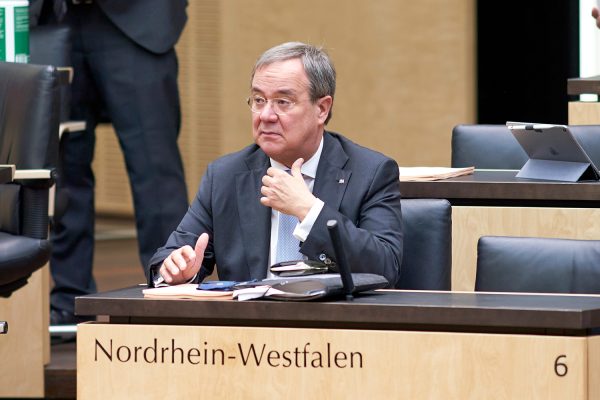
Germans want change. 61.5 percent would like to see a different government after the election in September, according to an Allensbach Institute poll; the highest share in thirty years. 67 percent believe it is time for a course correction in policy.
The findings are sobering for the ruling Christian Democrats, who have nominated the more-of-the-same Armin Laschet for the chancellorship. The prime minister of North Rhine-Westphalia proposes continuity from sixteen years of Angela Merkel. (I think the conservatives should have nominated the far more popular and semi-outsider Markus Söder of Bavaria.)
They are also the reason support for the Greens has been trending up. Recent surveys put the party — which has never been Germany’s largest — neck and neck with the center-right.
Merkel’s legacy
When I tried to explain why the Greens are on the rise a month ago, I argued it wasn’t that Merkel’s muddling-through centrism was wrong for its time but that it did leave issues unaddressed.
Germany produces fewer university graduates per capita than its neighbors. Its 4G network is one of the worst in Europe. Investments in rail are falling short. Billions of euros spent on an Energiewende have at best evened out Merkel’s decision to phase out nuclear power, which increased reliance on coal and natural gas. Just before the pandemic, the World Economic Forum downgraded Germany from third to seventh place in its competitiveness index.
Merkel seldom answered questions about Germany’s identity or its place in Europe for fear of stirring old passions. As a result, many Germans felt changes, like a million refugees and bailouts of weaker euro states, happened to them.
Break
Allensbach’s figures bear this out: they found that over half of German voters would support major changes in climate and immigration policy.
It helps explain the popularity of the Greens, who would phase out coal quicker, stop the Nord Stream 2 gas pipeline with Russia and invest an additional €500 million in digitalization, infrastructure and emissions neutrality.
It also helps explain the popularity of the far-right Alternative for Germany, virtually unchanged at 11-12 percent since the last election and concentrated in the former East. It too argues for a break, if in the opposite direction from the Greens.
